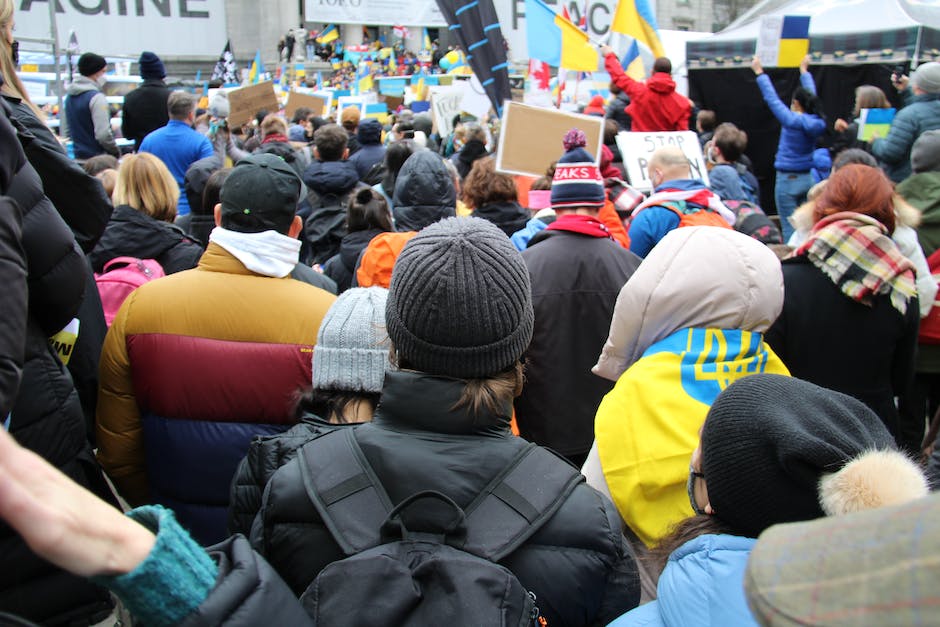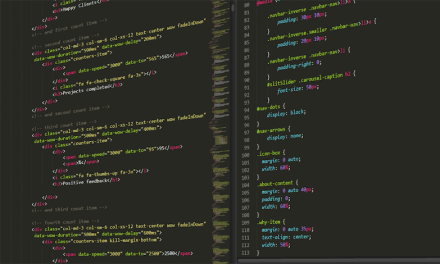Table of Contents
“The Paradox of Power: Unraveling the Enigmatic Reign of Vladimir Putin”
Introduction
“The Paradox of Power: The Remarkable Tenure of Vladimir Putin” is a book that explores the complex and contradictory nature of Vladimir Putin’s leadership in Russia. It delves into the various aspects of his rule, including his consolidation of power, his manipulation of the media, his foreign policy decisions, and the impact of his leadership on Russian society. Through a comprehensive analysis, the book aims to shed light on the enigmatic and enduring tenure of Vladimir Putin as the President of Russia.
The Political Strategies of Vladimir Putin

The political strategies employed by Vladimir Putin have played a significant role in his remarkable tenure as the President of Russia. Throughout his time in power, Putin has demonstrated a keen understanding of how to consolidate and maintain his authority, often employing a combination of coercion, manipulation, and strategic alliances.
One of Putin’s key strategies has been to centralize power within the Kremlin. By concentrating power in his own hands, Putin has been able to effectively control the political landscape in Russia. He has done this by weakening political opposition, suppressing dissent, and consolidating control over key institutions such as the media and the judiciary. This centralization of power has allowed Putin to maintain a tight grip on the country and ensure his continued dominance.
Another strategy employed by Putin is the use of coercion and intimidation. Putin has shown a willingness to use force to achieve his political objectives, both domestically and internationally. This has been evident in his handling of conflicts in Chechnya and Ukraine, where he has used military force to assert Russian influence. By projecting strength and a willingness to use force, Putin has been able to intimidate his opponents and maintain control.
In addition to coercion, Putin has also been adept at manipulating public opinion. Through the control of state media and the use of propaganda, Putin has been able to shape the narrative and control the information that reaches the Russian people. This has allowed him to maintain high levels of popularity and support, despite his controversial actions and policies. By controlling the narrative, Putin has been able to present himself as a strong and capable leader, further solidifying his position of power.
Furthermore, Putin has been skilled at forging strategic alliances both domestically and internationally. By aligning himself with powerful individuals and groups, Putin has been able to strengthen his position and neutralize potential threats. Domestically, he has cultivated relationships with oligarchs and other influential figures, ensuring their loyalty and support. Internationally, Putin has formed alliances with other authoritarian leaders, such as China’s Xi Jinping, to counterbalance Western influence and strengthen his global standing.
Despite the effectiveness of these strategies, there is a paradox at play in Putin’s tenure. While he has been successful in consolidating power and maintaining control, his strategies have also contributed to a lack of political pluralism and a stifling of democratic institutions in Russia. The centralization of power, suppression of dissent, and manipulation of public opinion have all served to undermine democratic principles and limit political freedoms.
In conclusion, the political strategies employed by Vladimir Putin have been instrumental in his remarkable tenure as the President of Russia. Through the centralization of power, coercion, manipulation, and strategic alliances, Putin has been able to consolidate his authority and maintain control. However, these strategies have also come at the expense of political pluralism and democratic institutions. The paradox of power is evident in Putin’s tenure, where his strategies have both solidified his position and undermined democratic values.
The Economic Impact of Putin’s Leadership
The economic impact of Vladimir Putin’s leadership has been a subject of much debate and analysis. During his tenure as President of Russia, Putin has implemented various policies and reforms that have shaped the country’s economy. While some argue that his leadership has brought about positive changes and economic growth, others believe that it has led to increased corruption and inequality.
One of the key aspects of Putin’s economic policies has been his focus on energy resources. Russia is one of the world’s largest producers and exporters of oil and natural gas, and Putin has used this to his advantage. Under his leadership, the state-owned energy companies have been strengthened and have played a significant role in driving economic growth. The revenue generated from the energy sector has allowed the government to invest in infrastructure development and social programs.
However, this heavy reliance on energy exports has also made the Russian economy vulnerable to fluctuations in global oil prices. When oil prices are high, Russia’s economy thrives, but when prices drop, the country faces significant challenges. This has been evident in recent years, as falling oil prices have contributed to a decline in Russia’s GDP growth and a rise in inflation.
Another aspect of Putin’s economic policies is his emphasis on state control and intervention in the economy. He has implemented measures to increase government control over strategic industries, such as banking, telecommunications, and media. While this has allowed the government to maintain a strong grip on the economy, it has also stifled competition and hindered innovation. Critics argue that this has led to a lack of diversification and a reliance on outdated industries.
Furthermore, Putin’s leadership has been marred by allegations of corruption and cronyism. Many argue that his close ties to the business elite have resulted in a system where a few individuals and companies have disproportionate power and influence. This has created a climate of inequality, where the rich get richer while the majority of the population struggles to make ends meet. The lack of transparency and accountability in the Russian economy has also deterred foreign investment and hindered economic growth.
Despite these challenges, Putin’s leadership has also brought about some positive changes in the Russian economy. He has implemented measures to improve the business climate and attract foreign investment. The government has simplified bureaucratic procedures, reduced red tape, and implemented tax reforms to encourage entrepreneurship and economic growth. These efforts have resulted in an increase in foreign direct investment and the emergence of a vibrant startup ecosystem in Russia.
In conclusion, the economic impact of Vladimir Putin’s leadership is a complex and multifaceted issue. While his focus on energy resources has brought about economic growth, it has also made the country vulnerable to fluctuations in global oil prices. His emphasis on state control and intervention has stifled competition and hindered innovation, while allegations of corruption and cronyism have created a climate of inequality. However, his efforts to improve the business climate and attract foreign investment have also yielded positive results. Ultimately, the true impact of Putin’s leadership on the Russian economy will continue to be a subject of debate and analysis.
Putin’s Influence on International Relations
Vladimir Putin, the President of Russia, has been a dominant figure in international relations for over two decades. His tenure has been marked by a paradoxical mix of power and influence, as he has managed to assert Russia’s position on the global stage while facing criticism and controversy. This article will explore Putin’s influence on international relations, examining both the positive and negative aspects of his approach.
One of the key ways in which Putin has exerted his influence is through his assertive foreign policy. Under his leadership, Russia has pursued a more assertive stance, challenging the dominance of the United States and its allies. This has been evident in conflicts such as the annexation of Crimea in 2014 and Russia’s military intervention in Syria. These actions have not only demonstrated Russia’s military capabilities but have also signaled to the world that Putin is willing to use force to protect Russian interests.
Furthermore, Putin has been successful in cultivating alliances with other countries that share his vision of a multipolar world order. He has strengthened ties with countries like China, Iran, and Turkey, forming strategic partnerships that challenge the traditional Western-dominated international system. This has allowed Russia to expand its influence beyond its immediate neighborhood and project power on a global scale.
However, Putin’s influence on international relations has not been without controversy. His actions have been met with condemnation from the international community, particularly in relation to human rights abuses and the suppression of political dissent. Critics argue that Putin’s authoritarian style of governance undermines democratic values and threatens the stability of the international order.
Moreover, Putin’s assertive foreign policy has also led to increased tensions with the West. The annexation of Crimea, in particular, was seen as a direct challenge to the post-Cold War order and led to economic sanctions being imposed on Russia by the United States and its allies. This has resulted in a deterioration of relations between Russia and the West, with a new Cold War-like atmosphere prevailing in recent years.
Despite these criticisms and tensions, Putin’s influence on international relations cannot be denied. He has managed to position Russia as a key player in global affairs, with a seat at the table in major international forums such as the United Nations and the G20. His ability to assert Russia’s interests and challenge the dominance of the West has earned him respect and admiration from some quarters.
In conclusion, Vladimir Putin’s tenure as President of Russia has been marked by a paradoxical mix of power and influence. His assertive foreign policy and strategic alliances have allowed him to project Russia’s power on the global stage, challenging the dominance of the United States and its allies. However, his actions have also been met with criticism and controversy, particularly in relation to human rights abuses and the suppression of political dissent. Despite these challenges, Putin’s influence on international relations cannot be ignored, as he has managed to position Russia as a key player in global affairs. The future of international relations will undoubtedly be shaped, in part, by Putin’s continued influence and the response of the international community to his actions.
Assessing Putin’s Legacy and Future Implications
The tenure of Vladimir Putin as the President of Russia has been nothing short of remarkable. Since assuming office in 1999, Putin has consolidated power, transformed the Russian economy, and reestablished Russia as a global player on the world stage. However, his legacy is not without controversy, and the future implications of his rule are a subject of intense debate.
One of the key aspects of Putin’s legacy is his ability to consolidate power. Through a combination of political maneuvering, media control, and suppression of opposition, Putin has effectively centralized power in the Kremlin. This has allowed him to implement his policies without significant resistance, but it has also raised concerns about the erosion of democratic institutions in Russia.
Another aspect of Putin’s legacy is his economic transformation of Russia. When he assumed office, Russia was in a state of economic turmoil, with high inflation, widespread corruption, and a struggling private sector. Putin implemented a series of reforms aimed at stabilizing the economy and attracting foreign investment. These reforms, coupled with high oil prices, led to a period of economic growth and stability in Russia. However, critics argue that this growth has been unevenly distributed, with the gap between the rich and the poor widening under Putin’s rule.
Putin’s foreign policy has also had a significant impact on his legacy. Under his leadership, Russia has reasserted itself as a global player, challenging Western dominance and pursuing its own interests. This has been most evident in Russia’s actions in Ukraine, where it annexed Crimea and supported separatist movements in the eastern part of the country. These actions have been met with international condemnation and have strained Russia’s relations with the West.
Looking to the future, the implications of Putin’s rule are uncertain. On one hand, Putin’s consolidation of power and his popularity among the Russian people suggest that he will continue to exert influence over Russian politics for years to come. This has led some to speculate that he may seek to amend the constitution to allow him to remain in power beyond his current term, which ends in 2024.
On the other hand, there are signs of growing discontent within Russia. Economic stagnation, corruption, and a lack of political freedoms have led to protests and calls for change. The recent protests in Moscow, sparked by the exclusion of opposition candidates from local elections, highlight the growing dissatisfaction with Putin’s rule.
The future implications of Putin’s rule also extend beyond Russia’s borders. Russia’s actions in Ukraine and its interference in Western democracies have raised concerns about its intentions and its willingness to challenge the international order. As Putin continues to assert Russia’s interests on the world stage, the question of how the international community will respond becomes increasingly important.
In conclusion, the tenure of Vladimir Putin as the President of Russia has been remarkable in many ways. His ability to consolidate power, transform the economy, and reestablish Russia as a global player cannot be denied. However, his legacy is not without controversy, and the future implications of his rule are uncertain. As Russia continues to navigate its place in the world, the world will be watching closely to see what comes next.
Q&A
1. What is “The Paradox of Power: The Remarkable Tenure of Vladimir Putin” about?
“The Paradox of Power: The Remarkable Tenure of Vladimir Putin” is a book that explores the leadership and political career of Vladimir Putin, focusing on the paradoxical nature of his power and the impact he has had on Russia and the world.
2. Who is the author of “The Paradox of Power: The Remarkable Tenure of Vladimir Putin”?
The author of “The Paradox of Power: The Remarkable Tenure of Vladimir Putin” is Brian Taylor.
3. What are some key themes discussed in “The Paradox of Power: The Remarkable Tenure of Vladimir Putin”?
Some key themes discussed in the book include Putin’s consolidation of power, his manipulation of the media and political institutions, his foreign policy decisions, and the implications of his leadership for Russia’s domestic and international affairs.
4. What is the significance of “The Paradox of Power: The Remarkable Tenure of Vladimir Putin”?
“The Paradox of Power: The Remarkable Tenure of Vladimir Putin” provides insights into the complex and contradictory nature of Putin’s leadership, shedding light on the challenges and consequences of his rule for Russia and the global political landscape.
Conclusion
In conclusion, “The Paradox of Power: The Remarkable Tenure of Vladimir Putin” provides an insightful analysis of Putin’s leadership and the paradoxical nature of his power. The book explores how Putin has managed to consolidate and maintain his authority in Russia, despite facing numerous challenges and criticisms. It delves into the complex dynamics of Putin’s regime, highlighting the interplay between authoritarianism, populism, and nationalism. Overall, the book offers a comprehensive examination of Putin’s tenure and sheds light on the enigmatic nature of his rule.




